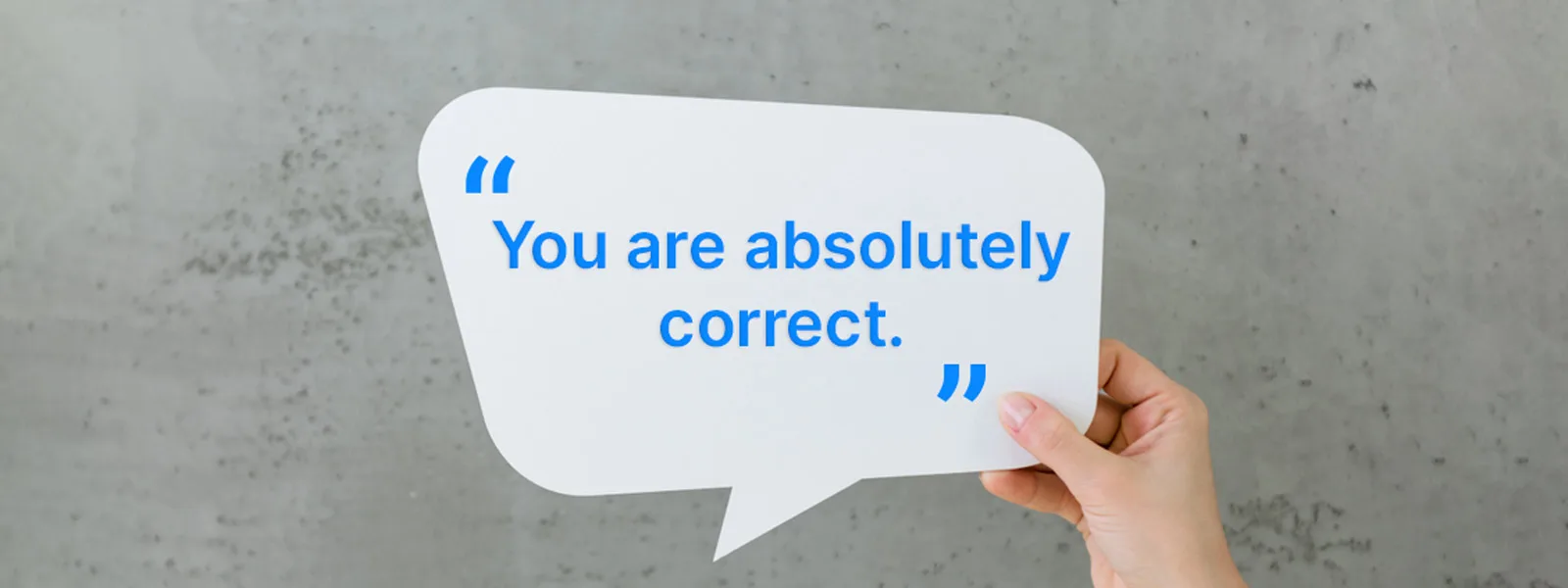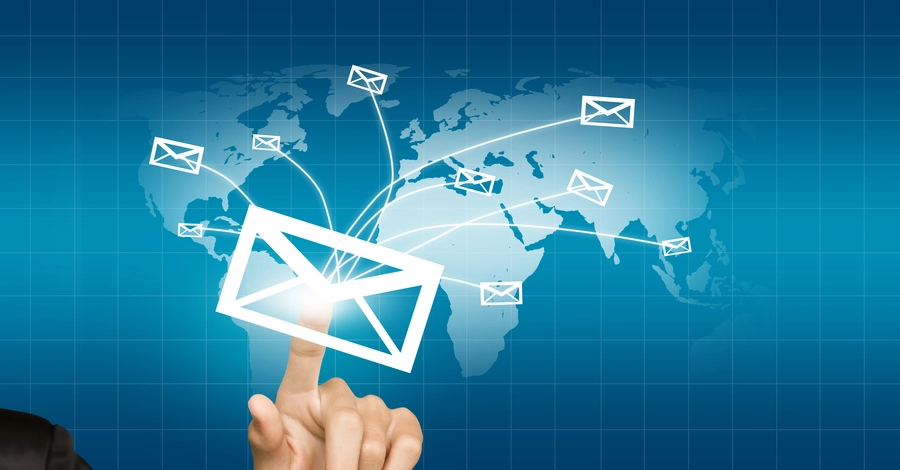15 Customer Service Acknowledgment Statements Examples
- October 26, 2022
- 14 mins read
- Listen

Table of Content
You cannot deny the fact that customers are the backbone of any business. And customer service is what keeps them coming back for more. The importance of customer service acknowledgment cannot be overstated.
It is a vital factor that influences customer satisfaction, and a good one can make all the difference between a happy customer and one who’s not so happy. It can also help improve your company’s reputation among customers and prospects alike.
The purpose of acknowledgment statements in customer service is to acknowledge the customer and to let them know that their issue has been resolved.
It is important for companies to have CSAs because it makes the customers feel like they are being heard and that they matter to your business.
What is Acknowledgment in Customer Service?
It is the act of a representative in a business, acknowledging that they have received the complaint and will be dealing with it within a certain amount of time.
Acknowledgment is usually delivered via email, but not always. It can occur via fax, text, or over the phone, but it is always important that the customer knows that you are receiving their information and will be taking care of the issue.
Besides, customer service acknowledgment is an important customer service skill and is the first step in resolving many issues.
If a person is having trouble with a company they need an acknowledgment, they need to know that the company is aware of their problem, and you are the way they are going to get that.
Importance of Acknowledgement in Customer Service
We are all in constant contact with companies, large and small trying to get our needs fulfilled. In fact just this very day you probably had some kind of contact with a company. There are times when the service we receive is just right, and then there are times when we’re left wondering what happened.
In today’s busy world, it seems that too many companies are forgetting the most important aspect of their business, the customer. The customer service representative is the face of the company, and their tone and demeanor can make or break a relationship.
The importance of acknowledgement in customer service is that it can help customers feel important and it can help to turn a negative experience into a positive one for the customer.
Acknowledgment can sometimes be small things like saying the customer’s name, thanking the customer, or even apologizing for a mistake that was made by an employee. Whatever it is, it is always important to acknowledge a customer.
15 Examples of Acknowledgement Statements in Customer Service

The goal of customer service acknowledgment is to make sure that the customer knows that their issue has been addressed and to provide the customer with a sense of closure.
The outcome of this process can be measured by how well the customer feels they have been served, how likely they are to recommend the company, and if they will continue to use the company in the future.
Let’s take a look at 15 examples of acknowledgment in customer service.
1. “I Realize That This Situation is Difficult, but Let’s Try and Find a Solution.”
In the business of customer service, we are often trained to settle a customer complaint quickly and efficiently. Acknowledging their dissatisfaction, validating their right to feel that way, and stating that you understand their issue and are taking steps to correct it. Great! That is all good stuff!
However, in the heat of the moment, when a customer is being unreasonable or just plain out of line, how do you respond? How do you deal with the irate customer or the one who thinks they are owed something?
In a case where you need to explain the facts of a situation that is not going their way, without allowing them to become defensive, it is important to choose your words carefully.
Since this can be a difficult situation for a customer service rep to handle, it is important to practice using phrases such as “I realize that this situation is difficult, but let’s try and find a solution.” to help avoid an argument.
2. “I Would Feel the Same in Your Situation, but We Will Sort This Out…”
This is one of the most common phrases in customer service phrases. It can be used to solve any problem or misunderstanding.
When you feel that the other party is not aware of his mistake, it is easy to start the conversation with this phrase. You just need to say: ‘I would feel the same in your situation, but we will sort this out…’ when they are wrong.
It is one of the most effective phrases in any type of communication because everybody knows that everybody makes mistakes and it is a great way to start a conversation.
There are two situations when you can use this phrase:
- When somebody asks you to do something and you don’t want to do it because you think they are wrong;
- When somebody tells you that they were wrong and they want to change the situation;
In situation, you will be able to fix the problem right away. Now, when I will get a phone call about a problem with a product or a service I will say: ‘I would feel the same in your situation, but we will sort this out…’ and we will talk about what went wrong and how to fix this problem.
This phrase can be used in any conversation and I would really recommend it because it will help you to solve any problem fast and easily.
3. “That Sounds Frustrating, Let’s See What We Can Do.”

When your customer is upset or angry about something that you have done, this phrase is for them to understand you feel the same as they do but you will sort it out and fix the problem. The first thing to do is to pause and listen to what the customer says before responding if you can accept the feelings your customers have.
“That sounds frustrating, let’s see what we can do” is used to acknowledge a situation that a customer is dissatisfied with and to attempt to resolve it in the best way possible.
In this customer service phrase, you can use this customer service phrase when a customer shared a situation that frustrates him/her.
An example use of this phrase is when customers complain about the long lines during the Christmas season, the long waiting time when they arrive at the theater, or when they got a wrong order from a restaurant.
4. “I Cannot Imagine How Upsetting It is to…”
“I cannot imagine how upsetting it is to…” is a phrase that demonstrates empathy and asks the customer to help with your understanding.
Emotional reasoning is when you assume that your own emotional reaction should be shared by other people. So, when a customer tells you they are upset, they are assuming your reaction will be the same as theirs.
Knowing this secret gives us an opportunity to do two things:
- First, we can change the moment by restoring calmness and composure.
- Second, we can talk about how we can solve the problem (which is what our customers want to hear).
5. “I’m Sorry to Hear That. Let Me See What I Can Do to Help You.”
Many of us have used the phrase “I’m sorry to hear that” when a customer is speaking to us in customer care call center jobs. We may think it’s just a courtesy phrase but it does more than that. It shows we truly care about them and their issue.
The phrase “I’m sorry to hear that” first came to my attention when I was working at Best Buy as a customer care agent. I would get calls from customers who were upset over something they couldn’t get fixed or just wanted to vent.
I started saying, “I’m sorry to hear that”, and they would tell me everything. Then I would say, “Let me see what I can do to help you” and they would tell me everything again.
6. “I’d Be Delighted to Help You.”
In customer service, you always want to try to make the situation right for your customer. However, sometimes this means acknowledging that you understand it is not always possible. I’d be delighted to help you acknowledge that it is not possible for the customer service agent or business owner to solve the problem, but that it is possible for them to find a solution.
You can use I’d be delighted to help you with all sorts of issues, from general inquiries about a product to complex problems and complaints.
7. “Don’t Worry, You Have the Best Person on the Phone to Assist You.”
The “Don’t worry, you have the best person on the phone to assist you” is a perfect acknowledgment statement when the customer is angry or difficult.
In these cases, most businesses will use an ineffective approach to diffuse the tension and to make the customer happy. Acknowledging the situation with a “Don’t worry, you have the best person on the phone to assist you” can calm down the customer because it lets them know that someone is right there who actually cares about them and wants to help them.
8. “You Are Absolutely Correct.”
“You are absolutely correct” is one of the more challenging statements to use in customer service. It is a statement of extreme praise reserved for those special agents who win over a customer with outstanding service.
It is also a powerful statement of reinforcement to help agents carry on and finish the conversation when they are very much in the right, and feel the customer may push back or become aggressive.
When agents are right, they will feel the customer saying (and sometimes may even hear), “What do you mean I am correct?
I want you to admit your fault. You are obviously wrong.” Instead of reacting with an “Umm…” or an “Oh…” or a completely defensive posture, the agents that use “you are absolutely correct” remove the power from the customer and make it clear to them that they are solid.
9. “If I Am Understanding Correctly…”
If I am understanding correctly… is a phrase that can be used to acknowledge and clarify something that the other person just said.
It is a phrase that you can use when you are not sure what the other person said because they may have been talking too fast, they might have pronounced something with an accent or they could be speaking a language that you do not know.
10. “You’re Right”
“You’re right” is one of the many magic words that can be used during customer service to make your customers happy.
This is a powerful statement that works like magic in customer service to diffuse and de-escalate a situation when the issue at hand is caused by the employee of the company.
The main goal is to give back the power to the customer and to acknowledge their point of view on the matter.
“You’re right” can be used as a way to share ownership of the mistake with the customer and this will allow you to address issues quickly and move forward.
It is important as well to use “you’re right” in a timely manner, as it could help you avoid an escalation.
You are acknowledging what your customer is saying and that you agree with them and then move forward. Using this statement can stop some of the anger or frustration levels from escalating.
11. “Thank You for Reaching Out to Us About This.”
Use the “thank you for reaching out to us about this” acknowledgment statement in customer service when you want to tell customers that you are working on their request, and/or thank them for reaching out to you about this issue.
For example, the “thank you for reaching out to us about this” is commonly used in the banking and credit card industries when dealing with fraudulent transactions and claims. The “thank you for reaching out to us about this” is also used in retail stores, restaurants, and even by contractors.
12. “I Am So Sorry to Hear That You Are Going Through This.”

The “I am so sorry to hear that you are going through this” is more than a sentence. It’s an acknowledgment statement in customer service.
This is what you want to say when you hear the customer say they are going through something – a loss, an injury, an illness, a natural disaster.
The goal is to show empathy and support rather than coming off as cold with a line that could be used in any circumstance like “we apologize for any inconvenience it has caused you.”
The language used during a difficult time is important and can make or break the mood of your customer.
So use the phrase “I am so sorry to hear that you are going through this” when someone tells you they have lost their job, their pet died, or their house flooded and offer them assistance through your company’s programs or direct support lines for aid.
13. “I Truly Understand How Difficult and Challenging That Can Be for You.”
There are many ways in which a customer experience can be enhanced. However, when it comes to genuine empathy, there is nothing better than saying, “I truly understand how difficult and challenging that can be for you”.
What these words do is give the customer a sense of your understanding. Let’s face it, sometimes we do have really bad experiences with some brands.
For example, the remote doesn’t work, the product is damaged, etc. And, when things like that happen we want two things: we want to be heard and we want to be helped.
But far too often we don’t get what we want. There are several reasons why this happens – because of the language barrier, because of a misunderstanding, because of a lack of empathy, or simply because the product was indeed defective and the customer was angry – and in this case, that’s OK.
But what isn’t OK is the fact that there isn’t even an attempt at empathy. In some cases, there is a sense that you are being dismissed or are being treated like a “nuisance”.
14. “I Appreciate Your Patience.”
This is a particularly useful strategy when you are handling customer complaints. It’s a way of saying “thank you for being patient with me” without apologizing directly. It also sends a subtle message to the customer that you don’t take their frustration personally.
To be successful, use this expression with an authentic tone. This statement will positively impact your company’s reputation for two reasons: This statement is considered particularly useful in the banking industry.
15. “Thank You for Remaining So Positive.”

This can be another way of saying “thank you for your patience” or “we appreciate your understanding.” but adding positively to the beginning keeps the customer from becoming defensive.
We are all familiar with the saying, “thank you for being so patient”… but do you know the best way to respond when a customer says, “thank you for remaining so positive?”
This phrase can be found in a variety of customer service situations… could you guess some?
- A customer got their order and is extremely happy, loves everything, and is just thrilled with their purchase.
- A customer is addressing a problem, but their tone reflects appreciation and the idea that they appreciate you resolving the issue
- A customer is very angry, they are even raising their voice but then they suddenly thank you for remaining so positive telling you that they will wait to speak with a supervisor and they will call back later.
Summary
Acknowledging a customer service issue is a win-win situation for both the company and the client because it helps to build trust and loyalty. The company can also use this opportunity to show how they will solve their customers’ problems, which can lead to more sales in the future.
The outcome of acknowledgment statements in customer service largely depends on the way it is executed. In that case, you have to establish a congenial customer service environment where a live chat and a chatbot play a crucial role.
Want to learn more? Take a free demo today!
Frequently Asked Questions
Acknowledgment statements in customer service are phrases used by representatives to validate a customer’s feelings, concerns, or issues. These statements show empathy and understanding, helping to create a connection and demonstrating that the customer is being heard. Examples include “I understand how frustrating this must be” or “Thank you for sharing this with us.
Customer acknowledgment refers to the act of recognizing and validating a customer’s issue, feedback, or request. It involves actively listening to the customer and responding in a way that shows their concerns are taken seriously, which can help in resolving issues and improving customer satisfaction.
To acknowledge customer service, representatives should actively listen to the customer, empathize with their situation, and provide reassuring responses. Use phrases like, “I see what you mean,” or “I understand how this can be upsetting,” to show the customer that their concern is being addressed.
Examples of acknowledgment phrases in customer service include:
- “I completely understand how you feel.”
- “Thank you for bringing this to our attention.”
- “I’m sorry you’re experiencing this. Let’s fix it right away.”
- “I appreciate your patience while we resolve this.” These phrases help in acknowledging the customer’s experience and moving the conversation toward resolution.
Positive statements for customer service focus on empathy, assurance, and a commitment to solving the customer’s problem. Examples include:
- “I’m happy to help you with that!”
- “We will do everything we can to resolve this issue.”
- “Thank you for giving us the opportunity to assist you.” These statements foster a positive and supportive environment during customer interactions.
When writing an acknowledgment, begin by expressing understanding or empathy for the customer’s concern. Provide reassurance and explain the next steps. For example, “Thank you for reaching out. I understand how important this issue is, and we’re working on resolving it as quickly as possible.”
To acknowledge a customer complaint, express empathy and take responsibility. Acknowledge the customer’s frustration and reassure them that the issue will be resolved. For example, “I’m really sorry you had this experience. I completely understand why you’re upset, and we will address this immediately.”
Acknowledgment statements are essential because they help customers feel heard and valued. They create a positive interaction, reduce frustration, and pave the way for effective problem resolution. Acknowledging a customer’s concern leads to greater satisfaction and can foster loyalty.
Acknowledgment statements contribute to effective customer service by building rapport and trust between the customer and the representative. They show empathy, make customers feel understood, and set the tone for resolving the issue. This enhances the overall customer experience and increases the likelihood of a positive outcome.
Customer service representatives can improve their use of acknowledgment statements by:
- Actively listening to customers without interrupting.
- Using empathetic language that reflects the customer’s feelings.
- Personalizing responses based on the specific issue the customer is facing.
- Maintaining a positive tone and focusing on solutions. Improving these skills can lead to more successful interactions and higher customer satisfaction.



